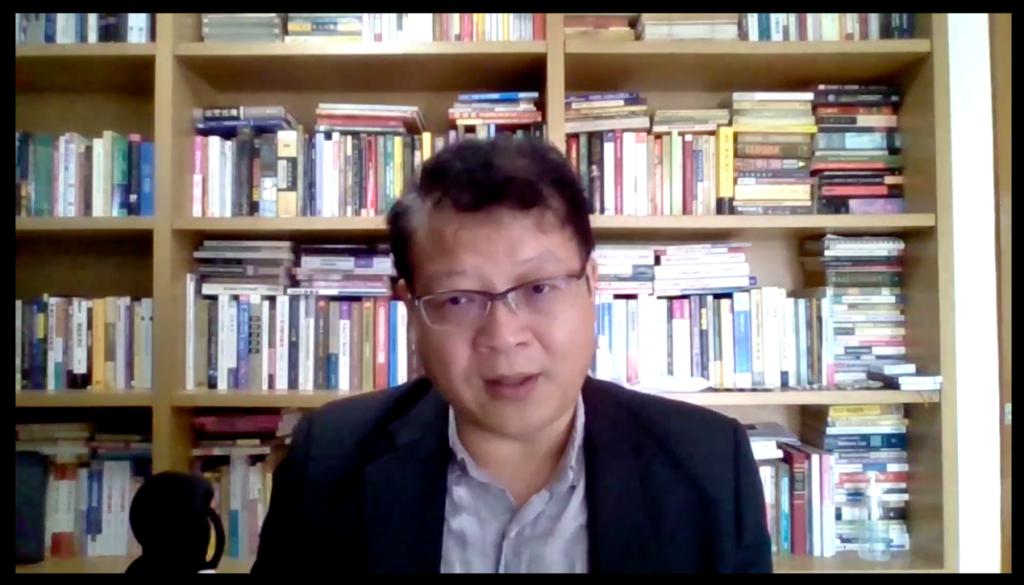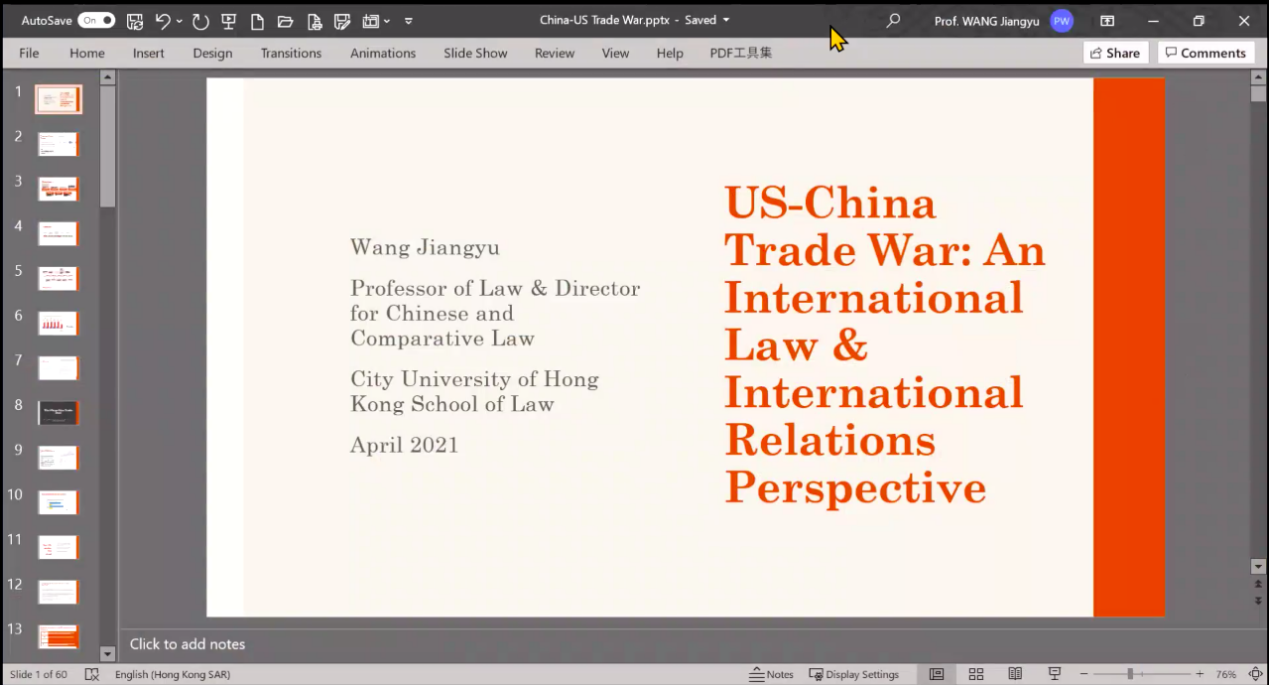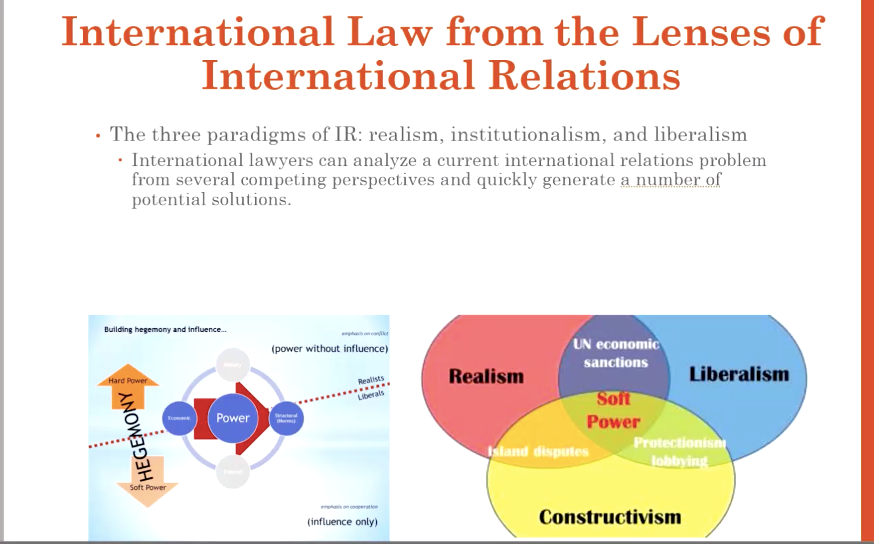At 09:30 on April 29, 2021, The keynote lecture of the Global Forum on Human Rights was held online at Xueyuan Road Campus of China University of Political Science and Law. Professor Wang Jiangyu, Professor of Law School of City University of Hong Kong and Director of the Center for the study of Chinese Law and Comparative Law, gave a special lecture to the Institute of Human Rights on the theme of "analyzing the Sino-US trade war from the path of combining international law and international relations" .

At the beginning of the lecture, Professor Wang Jiangyu analyzed the current situation of the Sino-US trade war. He pointed out that there are two current statements about the Sino-US trade war. One said that the trade war between China and the United States is still not over, because the new Biden administration has not abolished a series of trade war practices of the Trump administration, and has intensified in the field of science and technology. Another said the trade war ended later in the Trump administration because the United States did not unilaterally take substantive measures after the first phase of the agreement.
In the first part,Professor Wang provided three frameworks on looking at international law from the field of international relations. First, realism. Realism believes that everything between countries is to survive and seize more power, and there is no other purpose, in this sense, the role of international law is very small. Second, liberalism. Liberalism believes that the ideal world must be a world ruled by law, and international law should not only be used to define the boundaries of state behavior, but also to protect the interests of every individual. Third, institutionalism. Institutionalism believes that the system itself can provide many benefits independently and could always achieve the maximum common divisor through the system.
In the second part, Professor Wang briefly reviewed the development of the Sino-US trade war. The beginning of the Sino-US trade war is that Trump put forward a series of slogans in the 2016 election of the United States, which attacked China's trade policy. After the United States began imposing punitive tariffs on China in March 2018, China began taking reciprocal retaliation and filed a lawsuit against the United States in WTO. In the second half of 2018, China and the United States began the negotiation process, and finally signed the first phase of the economic and trade agreement in January 2020. However, the first phase of the trade agreement does not have special practical significance.

In the third part, Professor Wang analyzes the Sino-US trade war in the legal sense. There are enough legal provisions in international law for the Sino-US trade war. All punitive tariff measures by the United States against China violate the WTO law. At the same time WTO trade law strictly prohibits unilateral retaliation. It can be concluded that the measures taken by China and the United States are both in violation of existing international trade law. In addition, from the point of view of international relations, based on the theory of cooperation, Professor Wang said that the best game was to return teeth, that is, did not take the initiative to attack, but in the face of the other side of the attack timely take countermeasures.

In the last part, Professor Wang briefly introduced the new problems arising from the trade war. Firstly, the WTO dispute settlement mechanism. The Trump administration believes that this mechanism, especially the appeal mechanism, is irredeemable because the appeal mechanism makes numerous decisions that are not in the interests of US and its policy, and the WTO appeal mechanism is currently in a state of paralysis. Secondly, the dispute of mode. Before the trade war, there was a consensus between China and the United States that the United States believed that China could be included in the order formulated by the United States, but the United States later found that under this set of rules, the United States had lost its competitive advantage. China's state-led development model competes with the western private company development model. Thirdly, the emergence of new trade ideas. The wave of globalization has made capital gains, but not workers, thus creating a trade policy concept that allows workers to benefit.
The lecture was successfully concluded with warm applause from the students.
Written by SUN Yimei